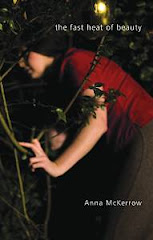
Hey y'all. I am pumped. Excited to tell you that my ex-tutor, digital poet John Sparrow has kindly reviewed my new book Taropoetics on his excellent Itchaway blog. However, for those if you too lazy to link to his site, I am very kindly reproducing the text here:
Before diving into the poem proper, it is worth drawing attention to the book’s introduction, which cites several poets as influential in the approach to writing these sequences. Though these form the basis of a more personally interpretive strategy, this is crucial to my understanding of the poems, being as I am a lover of procedural methods to produce unpredictable textual combinations. This is not to say that these poems cannot stand on their own merits, but that the poets McKerrow cites have very distinct methodological approaches which, for me, carry their own implications.
The poets mentioned — Hannah Weiner, John Cage, Jackson Mac Low — each employ conceptual or procedural frameworks for their texts. In the case of Weiner, the invasion of external stimuli — a case of the poet working with involuntary synaesthesia to produce a text. In the cases of Cage and Mac Low, the external is again vitally important as both a recognition of the influence of context in writing, but also as a tool for turning away from straightforward egocentric authority in the writing process. Both Mac Low and Cage have on occasion and to varying degrees allowed themselves to edit down the output produced by their procedures.
What McKerrow’s methodology shares with these processes is a welcoming of the external influences that are not merely influential but consequential — the use of outside systems that inform a new one. Using card combinations as stimuli for textual creation, and setting clear tasks across specific timeframes, the poems in Taropoetics come to form a whole sequence that simultaneously interacts with remapped systems and produce “fractured” narratives, whilst at the same time inviting the very linguistic frictions that allow for varied personal meaning-making. Like the card system that acts as a catalyst for her poems, McKerrow’s resultant texts are open to interpretation specifically in relation to the personal context in which they are uncovered. The systemic producing a radical personal.
If the methodology suggests the above assumptions, the texts themselves enact them. The poems are threaded with double meanings and the occasional subtle neologism. Whether planned or not, it becomes difficult not to see thematic relationships jumping across textual fragments. Perhaps the most successful moments for me are the completely shattering intrusions of mundane urgency that disrupt the momentum of imagery. For example, in poem 3, the majority of the language is disjointed in a way that encourages associative visual triggers. Phrases like “robotic feathers,” “sarcophagus glow,” “rage hopping,” “red knuckle bouquet,” — phrases that remind me of Maggie O’Sullivan’s short textual fragmentations — are suddenly undercut by the intrusion of the very real “dollar”. This is compounded by the following poem launching almost immediately into the everyday “regret cracked lino,” “regret” here being either the noun that cracked, or the verb, perhaps caught mid-sentence.
For me, these are the strongest moments of the work. Composed as they are through “techniques of automatic writing and trance,” the fragments — themselves broken up by the highly visible slash — become absorptive in their consistency of fragmentation, then at times suddenly take one of several turns in new directions and foreground once more the language in play. At other times, ambiguity of, for example, verb / noun creates complex and dense configurations that demand re-reading (“feet the callusy smell”). Articles, objects, are often sparsely contextualized within their fragments, encouraging an interpenetration across fragments, memories of fragments. Colours link dungeons to butterflies, chamber and hair. Language points to senses, whether through implied memory or an actual sense (smell, for example, seems to run throughout, explicitly and implicitly, with “coppery smell,” “smelt sweet,” “smell of caves,” even “clean sheets.”). Then suddenly, there is absolute clarity of voice and direction of object such that clarity itself seems absurd, unreal or simply brutal (“I’m doing this,” “all the work I do,” “fucking bitch.”).
I am again reminded of O’Sullivan in the way that these poems tread a delicate line between the intricate and fragile on the one hand and the brutal on the other. Sonically and thematically, condensed phrases are sometimes gentle on the ear, but just as likely to be cacophonous and jarring. As with the voice dichotomies, this is where the poems foreground their linguistic construction to me and open up the real joy of experiencing the text.
And Taropoetics is a joy to read. For me, this joy lies in the unpredictability but consistently forceful language throughout the book. Whether this is violently forceful or gently persuasive depends on which cards you are dealt.
http://itchaway.net/iablog/anna-mckerrows-taropoetics/






1 comment:
wonderful!
Post a Comment